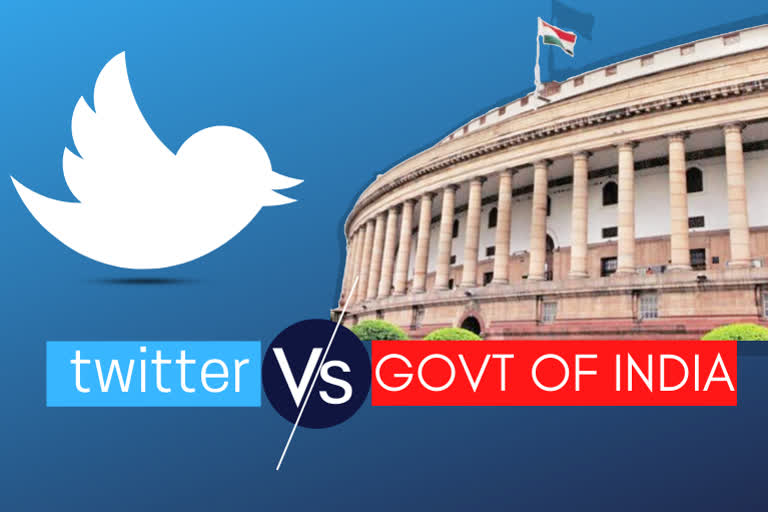Hyderabad: The fierce engagement between Twitter and Indian government doesn't seem to end anytime soon with the Delhi High Court cautioning the American microblogging site to conform to the Indian laws and appoint a resident grievances officer soon. The court said violating the IT Rules would land Twitter in "trouble".
Already Twitter is legally cornered over issues ranging from hosting a manipulated video with communal undertones to carrying child pornography and sinfully depicting India's map.
But India is not the first country where Twitter is facing serious issues. China, Thailand, Russia, Nigeria, Iran etc have already banned Twitter. In fact, China had banned Messenger in 2011, Twitter (2009), Skype (2017), Tumblr (2016), Google and Facebook are almost nonexistent in the 1.41 billion population nation.
So much so 36 states US states and Washington DC have filed a lawsuit against Google today, alleging that the search engine giant's control over its Android app store violates antitrust laws. The law agencies have "accused Google of requiring app developers selling in-app digital content through apps purchased via Google's Play Store to use Google Billing as a middleman, forcing app consumers to pay Google's commission up to 30 per cent indefinitely".
But in India, the government has given enough elbow room to Twitter. The IT ministry served a notice to Twitter on February 25 to take down contentious content, recruit a grievances redressal officer and cooperate in investigation to which the US mocroblogging site preferred to remain uncommunicative.
Also Read: 36 US states drag Google to court over violation of antitrust laws
The standard practice for any foreign company to operate in India or any other country is it needs to comply with the domestic laws of that nation. India is a huge market for Twitter, and it would be unwise on its part to go against the IT Rules. Contrast this with a small nation like Singapore (almost the size of Chennai) where people are highly educated and forward looking but have strict laws for foreign companies including media organisations operating in the small island.
Lee Kuan Yew, statesman and lawyer who served as Prime Minister of Singapore from 1959-1990 was known as a tough and no nonsensical administrator, but no one can dispute the fact that he transformed the island-nation to one of the best countries in the world. He imposed strict rules on foreign companies and media houses operating in Singapore. In his address to the American Society of Newspaper Editors in Washington, DC in 1988, Lee said, “Singapore’s domestic debate is a matter for Singaporeans. We allow American journalists in Singapore in order to report Singapore to their fellow countrymen. We allow their papers to sell in Singapore so that we can know what foreigners are reading about us. But we cannot allow them to assume a role in Singapore that the American media play in America, that of invigilator, adversary and inquisitor of the administration. If allowed to do so, they will radically change the nature of Singapore society, and I doubt if our social glue is strong enough to withstand such treatment.”
Even today the top five most used social media networks in Singapore are WhatsApp, YouTube, Facebook, Instagram and Facebook Messenger; not Twitter. Twitter is just under 6.3 percent of the social media market in the Asia Pacific region. Imagine, what would have been the fate of Twitter had Lee been still alive!
Twitter reach in India is 18.8 million, not a big number considering Facebook and WhatsApp with 330 million and 390.1 million users respectively. Facebook and WhatsApp have no problems with Indian laws, both have designated officers to man and address the problems, why not Twitter!
The face-off persists. Last Thursday, India's information technology minister told Parliament that "action" would be taken against social media platforms if they were "misused to spread fake news and violence". The minister went on to add, naming a number of sites, including Facebook and Twitter, "You have millions of followers in India, you are free to do business and make money, but you will have to follow the Indian Constitution."
With little respite coming from any quarter it would be a tough call for Twitter to take on the IT Rules. If anything, the Delhi High Court's rap should serve Twitter to not take offhandedly the legal norms in India.



